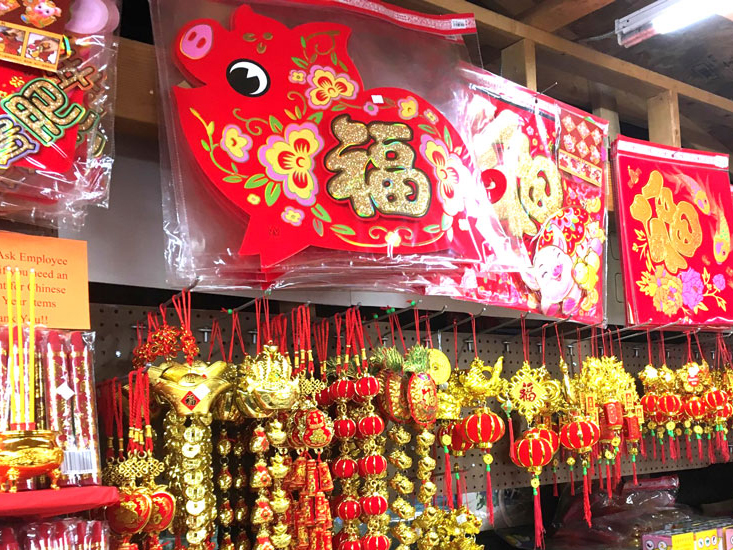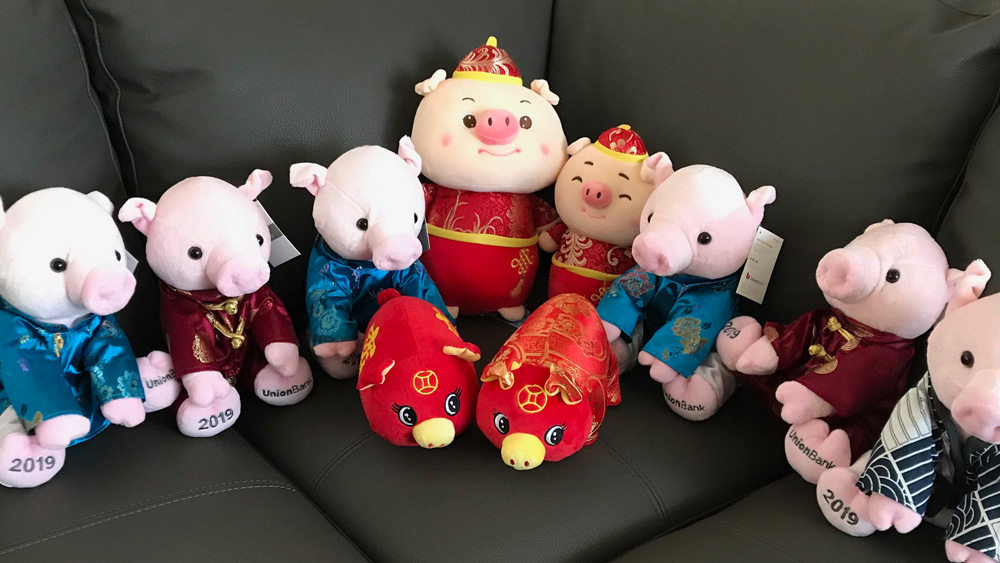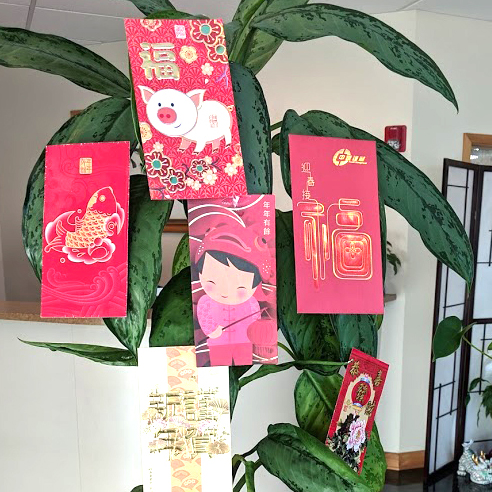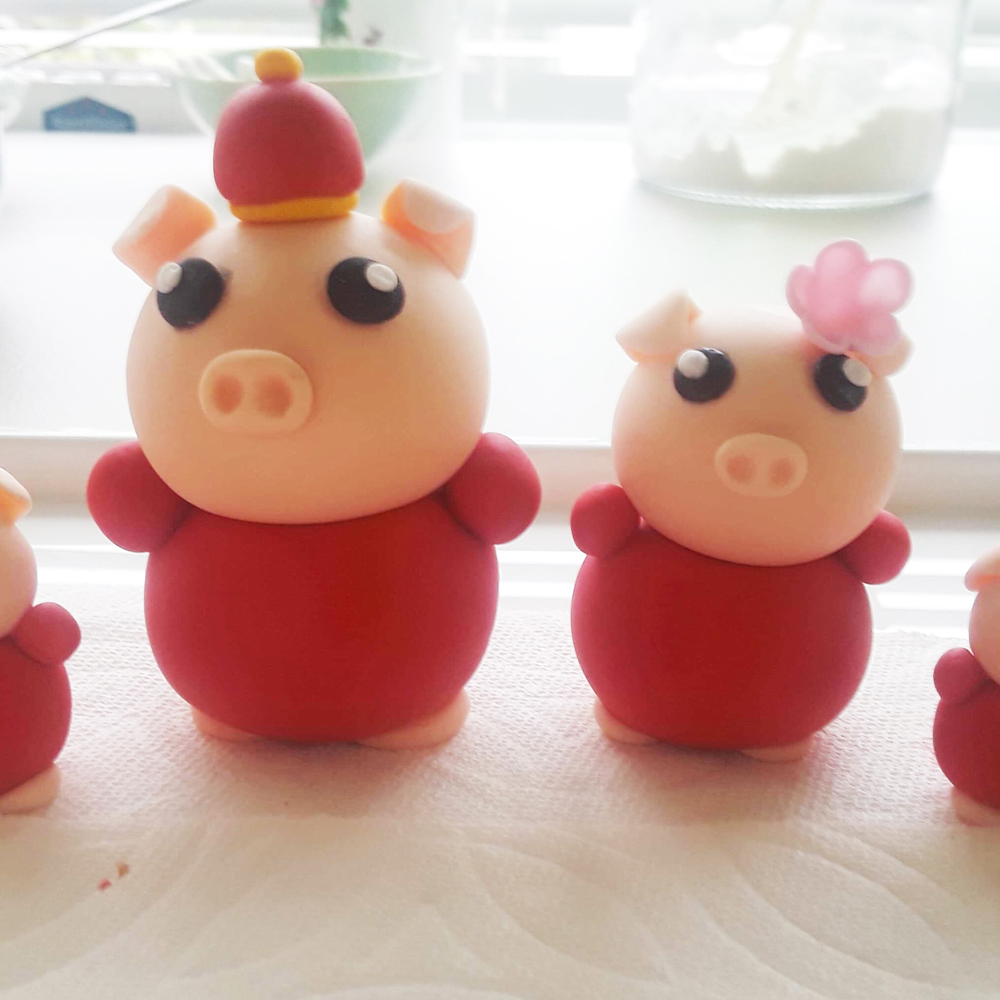By Assunta Ng
NORTHWEST ASIAN WEEKLY

Lunar New Year was the happiest days of my childhood in Hong Kong, where I was raised. What’s not to love? There’s no school, great food, new clothes, and lots of red envelopes (lucky money). Since we were poor, my parents never gave us much of an allowance. The lucky money would last me almost a year.
Now that I’ve lived in America for decades, many of those New Year traditions are still close to my heart, it reminds me of the joyous times I had. Some of them are enjoyable, while others are downright silly to follow. I will explain later. You don’t have to be Asian to celebrate Lunar New Year. You can do more than simply dine in an Asian restaurant.
What inspired me to write this blog was when Seattle Rotary Club President Cindy asked me to recognize Lunar New Year during our Rotary meeting on Feb. 6. That’s a first in my 27 years as a club member. Thank you, Cindy, for the opportunity to share my culture.
It’s more inclusive to do a Lunar New Year, rather than a Chinese New Year celebration since Washington state is made up of diverse Asian communities. Seattle’s Chinatown is part of the International District, including Filipinotown, Little Saigon, and Japantown.
Appetizing cuisine
A major theme of Lunar New Year is the food. I don’t mean to stereotype. My Chinese DNA would never say “no” to yummy food. You can easily organize an Asian dinner or lunch to celebrate the New Year with friends and family.
The first thing that comes to mind is to get rid of the overcooked chicken we have at our club meeting when we meet each week. I understand the rationale behind it. Seattle’s food cost is high, and chicken is a good source of protein and reasonably-priced. Our club staff member Mariah requested the Hyatt at Olive 8 for an Asian entrée for our meeting. The chance of getting the same old is high. We never know unless we try!

To my surprise, the Hyatt at Olive 8 presented us with an Asian fusion menu, including miso and citrus glazed salmon, bok choy, jasmine rice, cilantro and cabbage slaw, and matcha white chocolate mousse for dessert. I was elated. And fish symbolizes abundance, it is a wise choice for Lunar New Year.
If you want an elaborate Lunar New Year dinner, you have to include oysters (meaning good things will happen to you); shrimp (sounds the same as laughter in Chinese so you can laugh all year round); noodles (longevity); and steamed cake nien go (you rise higher). (For more Lunar New Year’s foods, read next week’s issue of the Northwest Asian Weekly.)
Adding small delights, you can treat your guests with lucky candies and fortune cookies (an American invention). That’s okay, too.
Dress in red and gold
Although my family didn’t have much money, my late mom would try to buy us kids new clothes for New Year. She skipped some years. We didn’t mind as it’s more exciting to have delicious food and lucky money.
Now in America, I don’t buy clothes because of New Year. What for? I don’t need it. I prefer dark pants and my black leather jacket every day during the winter. Comfort overcomes vanity. Black is not a
lucky color. As long as I wear something colorful and often red during the first two days of New Year, it will compensate for my black outfit.
Asian cultures are big on symbolism, especially fortune and luck. Red and gold symbolize good luck. Our club president has invited members to dress in red and gold for our meeting. Wow! A sea of fortune in our meeting next week would be a charming sight. Some female members already said they would wear their Asian dress. She confessed that she would diet a week before to fit in. Using Lunar New Year to improve your wellbeing is wonderful.

No knives or clocks
Knives, in Chinese culture, symbolizes severing ties. I guess if you dislike someone, you can give them a knife as a gift. My kitchen knives are so blunt, they are non-functional. So Paul Mar, a community leader, suggested that I ask Tai Tung Restaurant owner Harry Chan to sharpen them. Harry quickly said yes. After all, Tai Tung has the equipment.
“We are old pals,” I said. “I don’t want to be cut off from Tai Tung.”
“Just put a penny on it,” said Paul. That will do the trick of warding the bad spell from the knife. I didn’t know that.
Mom also said don’t buy your friends clocks or watches either. The word for clock in Chinese rhymes with death. It is safer to get your friends Lunar New Year cookies and candies, they are all available in Asian supermarkets.
Decorate with lucky items

You can decorate your room with posters of lucky red and gold Chinese characters, available in the International District (ID). Or make your own. The beautifully designed long posters should be on both sides of your door to receive fortune in your house. The square ones should be on the upper center part of the door.
The easiest way is to buy some red envelopes and decorate them around your home. We place them on our house plants. You can also buy those in the ID. Representing life and energy, flowers are good accessories for the New Year. My family would go to the Flower Festival before the New Year, to buy “lucky flowers,” such as red gladioli, tulips, and peonies. Visit ID floral shops, and you will find those fortunate plants and flowers.


Hand out red envelopes
What does giving out red envelopes mean? The giver wishes the receiver good luck. In giving, both the giver and receiver will receive blessings. It doesn’t matter how much money you put in the envelope, you give what you can afford. In my childhood, a small amount would be enough to make me smile. Anytime I received over $1.50 US, I would scream with tears of joy. That was rare, though. Usually, my red envelopes from relatives consisted of 15 cents to $2.
Adults including bosses are supposed to give out red envelopes. If you don’t, it will create a lot of bad feelings. One year, a Chinese reader complained that his Chinese boss failed to do so. It did affect morale. In my 37 years as publisher of the Asian Weekly and Chinese Post, I have never failed in handing out red envelopes for Christmas and Lunar New Year. Just think, I am actually the lucky one who can afford to give. And everyone is happy.
My son lamented that he could no longer receive red envelopes since he just got married. Instead, he has to hand out lucky money to his nieces, nephews, and even friends’ kids. Well, son, you have already over-earned since you married late. Think of those who got married in their 20s, and have no kids. Shall I say, “Kids are a good investment in the New Year!”
My late mom griped about giving out red envelopes to relatives who have more than five kids, and grandkids. One year, my brother got a red envelope with less money from his godmother, but I got the big one. I guess his godmother mixed up the red envelopes. Did I return the big envelope to my brother?
Not if you were a kid! So always mark the ones if you put in a bigger check. You can buy all styles of red envelopes in ID grocery stores.
No funerals or hospitals
Mom didn’t visit her sick friends in a hospital during New Year or attend a funeral. It’s bad luck to do so during Lunar New Year. However, deaths and fortunes are unpredictable in our lives. I would object to what my mom did. When someone is vulnerable, they need your support the most. Yes, I have visited hospitals and attended funerals right before and during New Year.
Ironically, mom died three weeks before New Year last year. I immediately wanted to go back to Hong Kong to see her one last time. But a relative said no, it takes longer to get the death certificate. And no funeral homes were open right before, and 15 days after, New Year. What that demonstrates is that a cultural belief has transformed into unhealthy practices.
In life, you just can’t worry about all the rules and traditions which prevent you from doing the right thing. Were those years bad luck for me when I went to funerals and hospitals? I don’t recall any major disasters happening to Asian Weekly or my family in those years. To me, that’s good enough. There is a difference between using cultural practices wisely to enrich our lives, and letting them handicap us so we couldn’t grow as sensible and kind human beings.
Open house
Since Lunar New Year is a national holiday in Asia, there will be no school. Students in China have about a week to 10 days off. I remember we had to visit all our relatives and loved ones during the first 10 days of Lunar New Year. Usually, we brought with us fruits, cookies, and candies when we visited. In turn, our relatives would pay us respect by visiting us. Yes, they would bring along goodies, too. That’s why we needed to clean our house before New Year, just as Americans do during spring cleaning.
Clean house
My mom did a good job in keeping our home clean in Hong Kong. Not me, I am mostly overwhelmed by it this time of the year.
This year, I started cleaning my table cloths and quilts on Jan. 20. (Just put them in my washer, and sent the big heavy ones to the dry cleaners.) Both my home and the Asian Weekly’s office would be cleaned a few days before the New Year. No one is supposed to clean on New Year’s day since it would mean throwing away your wealth. We don’t even touch the dishes. Just put them away in the dishwasher overnight. I would admit, that’s a superstition. I don’t know why I still embrace it after all these years!
Assunta can be reached at assunta@nwasianweekly.com.



